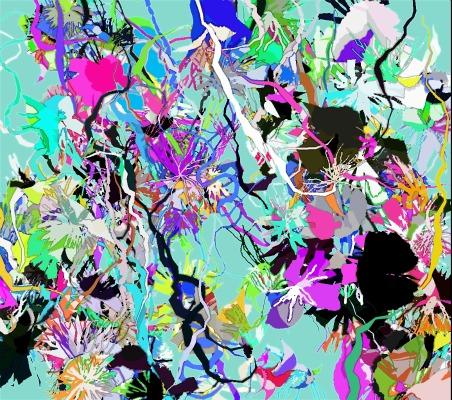Artist spends decades teaching a computer to paint — successfully
AARON, a computer programmer, learned to paint all sorts of images over a course of 40 years.
Take a quiz on Studio360.org and find out whether you can spot a computer-generated painting, versus one done by a human.
AARON is the world’s first cybernetic artist: an artificially intelligent system that composes its own paintings.
Incredibly, the system is the work of one man, Harold Cohen, who had no background in computing when he began the effort.
Cohen was a prominent painter; he represented Great Britain in the Venice Biennale of 1966. After settling in San Diego, he became interested in the exotic new field of computer programming.
It was still performed on punch cards, but Cohen began to teach a computer to paint, modeling the decisions made by an experienced artist — as though he were teaching a particularly dense art student.
“The vast majority of us,” Cohen said, “follow rules that somebody else taught us when we were growing up and going to art school. Nobody really invents art from scratch. The computer can in principle enact whatever rules you’re capable of enunciating, but enunciating those rules in a computer language is a nontrivial issue.”
That’s British for astonishingly difficult.
Cohen taught AARON to paint black and white abstractions, then added color, then figuration. He taught it that human bodies fall within a spectrum, how certain types of plants grow, and more.
Looking at its paintings, it’s hard to believe that the painter ‘felt’ nothing while making them.
Edward Feigenbaum, one of the pioneers of artificial intelligence, considers AARON a remarkable example of AI displaying genuine creativity.
“What you call a creative act, it’s actually a behavior that you observe,” he said. “It elicits a kind of emotion of, ‘how did he or she or it think of that?’”
Yet Cohen disagrees; he considers AARON — into which he has poured 40 years of his life — not to be creative.
“I think creativity has to involve self-modification in the sense that the creative act has to leave the creator with a different world model than it had before,” he said.
AARON is highly intelligent, but “having a brain and having a life are two different things,” he said.
